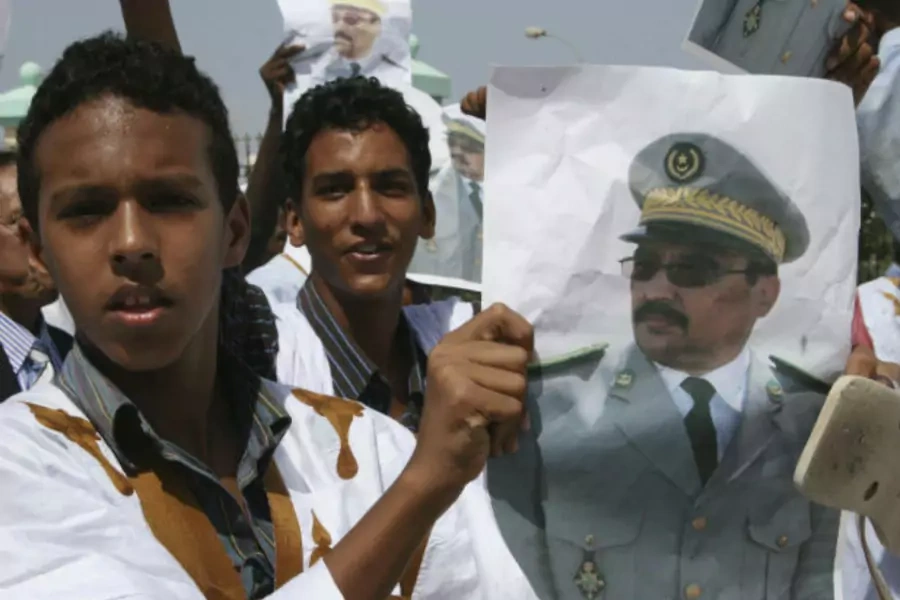Mauritania’s Uncertain Position in Face of President’s Extended Recuperation

More on:
This is a guest post by Geoff Porter, an analyst with North Africa Risk Consulting, Inc. (NARCO). He is a specialist in North Africa and the Sahel.
One month ago, Mauritanian President Mohamed Ould Abdelaziz was shot and evacuated to Paris. He has not returned.
At the best of times, the president’s absence is not good, but this timing is especially troublesome because of the uncertainty next door in Mali. Almost half the country is clumsily controlled by non-state actors, some of whom have links to al-Qaeda. Is Mauritania the next shoe to drop in the Sahara/Sahel crisis?
A month on, it is still not clear how President Abdelaziz was shot. The official version is well known: the president was returning late at night from his farm outside the capital; security around the capital was high because of unspecified threats; the president was traveling off road, ahead of his security detail; jittery soldiers fired on a speeding car.
Other interpretations have since flourished, ranging from the plausible to the salacious. The shooting was a coup attempt by disgruntled officers. It was an assassination attempt by al-Qaeda in the Islamic Maghreb (AQIM). It didn’t take place on the road at all, but was at the hands of a cuckolded officer at the president’s farmhouse. And it goes on.
This begs the question of who is in control. Ostensibly, Abdelaziz is still president. He allegedly delegated some powers to Prime Minister Moulay Ould Mohamed Laghdaf. Army Chief of Staff Mohamed Ould Ghazouani has assumed some responsibilities. The Coordination of Democratic Opposition (COD) is calling for greater clarity around both the shooting and who’s in charge. A presidential spokesman dismissed the whole episode–presidents get sick.
Where does this leave us? There’s always the possibility of Abdelaziz’s imminent return. The longer he stays in Paris, however, the less likely this is. If he does not return, he could orchestrate a handoff–likely through some compromise with Ghazouani, Laghdaf, and Messaoud Ould Boulkheir, speaker of the parliament. This would probably result in new elections with a President Abdelaziz lookalike elected. Worst-case scenario? The military seizes upon President Abdelaziz’s absence to stage a coup (bloodless except for President Abdelaziz,) which is met by widespread popular opposition.
The situation in Mauritania is especially problematic given the situation in neighboring Mali. The non-state actors there have varying islamist and jihadist orientations. Mauritania itself has had its share of problems with AQIM. A power vacuum in Nouakchott could broaden the belt of instability in Mali further west toward the Atlantic coast, and transform ECOWAS efforts to address Mali into a Mali/Mauritania situation. ECOWAS does not currently have the political wherewithal or bureaucratic capacity to deal with both situations.
More on:
 Online Store
Online Store